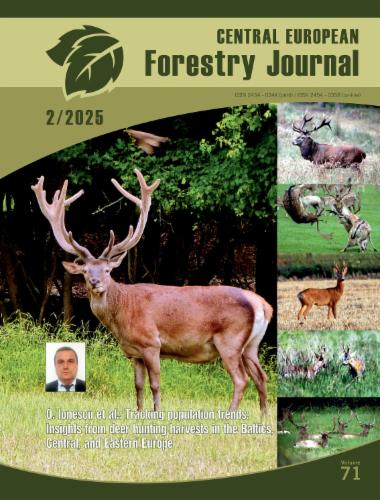Variation in frost resistance of ten poplar clones tested in eastern Ukraine
Publicado en línea: 23 may 2025
Páginas: 97 - 106
DOI: https://doi.org/10.2478/forj-2024-0028
Palabras clave
© 2025 Natalia Vysotska, published by Sciendo
This work is licensed under the Creative Commons Attribution 4.0 International License.
Assessing frost tolerance of hybrid poplar clones in the temperate zone is a key factor to select genotypes used for plantation forestry to intensify wood production and to strengthen forests’ adaptability to extreme weather conditions. This study aimed to evaluate frost resistance of ten poplar clones, aged 7 years, in eastern part of Ukraine. We analyzed frost resistance by comparing the average tissue damage indices of control plants with those exposed to frost temperatures of –25 °C and –30 °C. Cluster analysis further classified the clones into four distinct groups based on their frost resistance potential. Clones, which have been cultivated or intercrossed in Ukraine since the 1960s, are more resistant to frost due to the acclimatization of their parental individuals. Clones ‘Gulliver’ (
